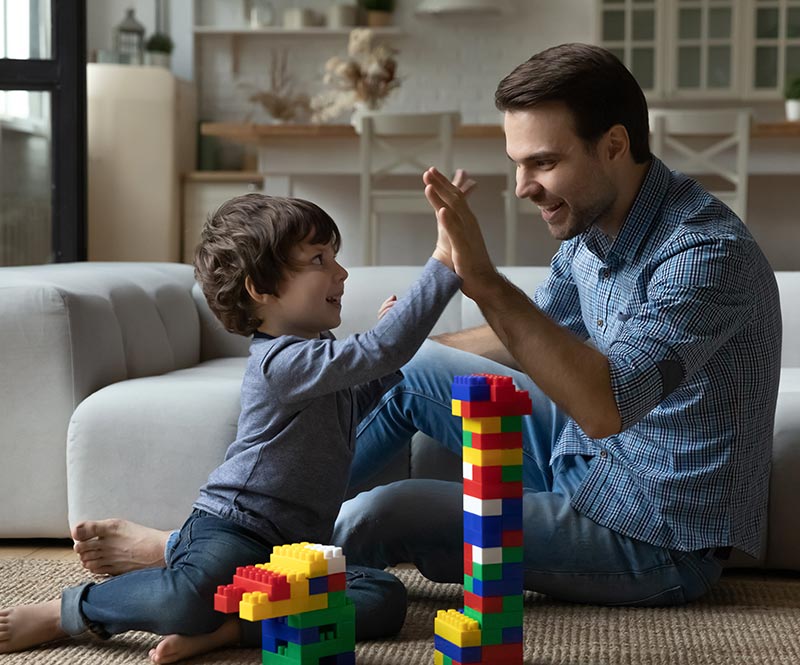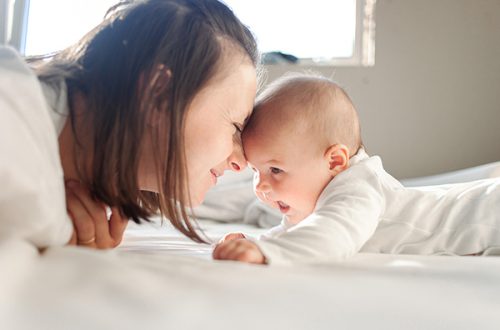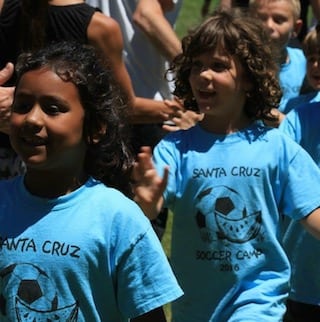Parenting is undeniably challenging. I remember bringing my daughter home from the hospital and worrying, “Will I mess this up? Can I help her thrive?”
Facing insecurities and the endless existential questions, bombarded by advice from TV, internet, social media, and everyday conversations, it was easy feeling judged for every decision. Now that she’s a toddler, I still face many opinions, but I’ve learned to trust what works for our family.
This month we’ll explore the power of praise, a topic that generates many opinions and questions
How much is too much or too little? Will my children become dependent on praise? Does it do more harm than good? These are important questions, and like much of parenting, the answer is, “It depends.”
This monthly column provides tips for anyone who is raising children, based on the world-renowned Triple P – Positive Parenting Program, available to families in Santa Cruz County. If you have questions for a future column, email me at [email protected].
Dear Yesenia, My 4-year-old daughter is a great kid, and I don’t have any parenting problems right now. But during a play group, another parent mentioned that giving praise might negatively impact kids by making them dependent on external validation. I praise my daughter, and she seems to like it, but should I stop? Ella
Dear Ella, Thanks for your question! It sounds like praise works for your family, which is a good reason to continue.
Opinions on praise vary: some studies say praise increases children’s willingness to tackle challenges and continue trying tasks. Others say praising children’s intelligence makes them less likely to take on challenging tasks, especially when they have low self-esteem to begin with. That makes it clear as mud, right?
Not all praise is equal. Vague, over-exaggerated or overused praise loses its meaning. But praise – also called encouragement, acknowledgement, or positive feedback – is effective when it’s sincere, specific, and descriptive.
Consider how it feels when you get positive feedback about a task you worked hard on at home or your job. It feels good to be acknowledged and makes you want to do more of the same, right?
The same thing applies to kids. Here are some tips for using praise effectively:
Praise your child’s efforts and accomplishments
“I can see how hard you’re studying for that spelling test,” or “You were really focused during soccer practice” are examples of acknowledging a child’s efforts. This type of praise tells children they are valued for just being themselves and trying their best, regardless of the result. This helps increase children’s motivation and persistence when learning new or difficult tasks.
“Great job on your spelling test,” or “I’m proud of you for scoring a goal today” are examples of praising accomplishments.
This type of praise can be rewarding for children, it tells them you noticed their achievements. Try to praise accomplishments your children worked hard to achieve, especially as they get older.
Praise may sound insincere– and lose its meaning – if they feel they’re being praised for accomplishments that come easily or are routine.
Describe the specific behavior you want to see more
Descriptive praise is an effective way to encourage positive behaviors and help children learn new skills. For example, “I’m impressed you cleaned your room all by yourself,” or “Thank you for using your calm voice to ask your brother to stop teasing you”.
Keep the praise focused on positive behaviors
Avoid giving praise that sounds like criticism, such as “It’s nice to see you following the rules for a change,” or “Thank you for not talking back to me like you always do.” These statements keep the focus on problem behaviors instead of recognizing their positive choices and improvements.
Be genuine and sincere
Use words and body language that feel natural to you. Even if you stumble over your words, your children will feel the genuine love and appreciation behind your praise.
The “debate” about whether praise is helpful will likely continue. Everyone is entitled to their opinion and to make their own choices about how to raise their children.
However, perhaps instead of debating whether to praise children, we should be asking ourselves how to use praise effectively to encourage children’s confidence, competence, motivation and independence. That’s what parenting is all about, right?
Yesenia Gomez-Carrillo is the mother of a 2-year-old daughter and the Triple P Program Manager for First 5 Santa Cruz County. Scientifically proven, Triple P is made available locally by First 5, the Santa Cruz County Health Services Agency, and the Santa Cruz County Human Services Department. To find a Triple P parenting class or practitioner, visit triplep.first5scc.org, facebook.com/triplepscc, or contact First 5 Santa Cruz County at 465.2217 or [email protected].








One Comment
VABxvsyH
1